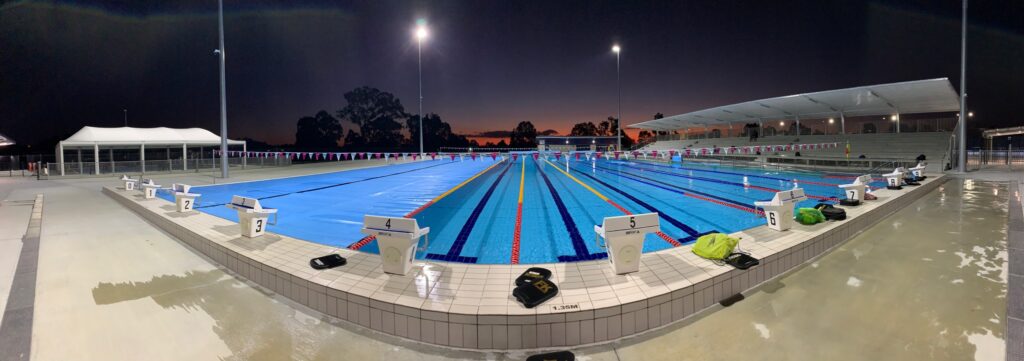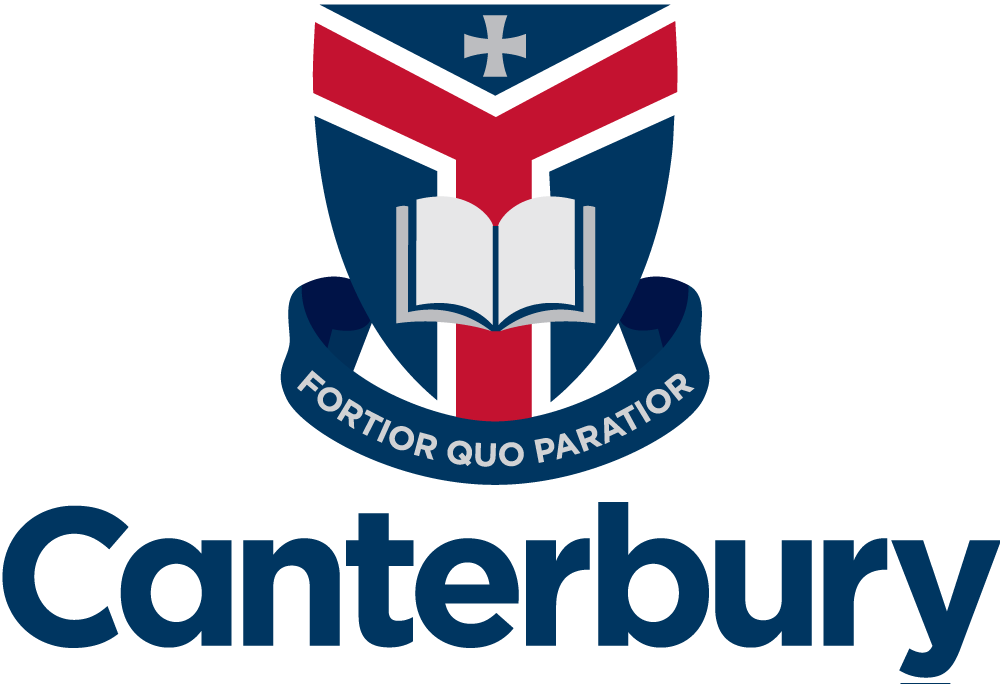Canterbury Taipans – Swimming Squads Development Program
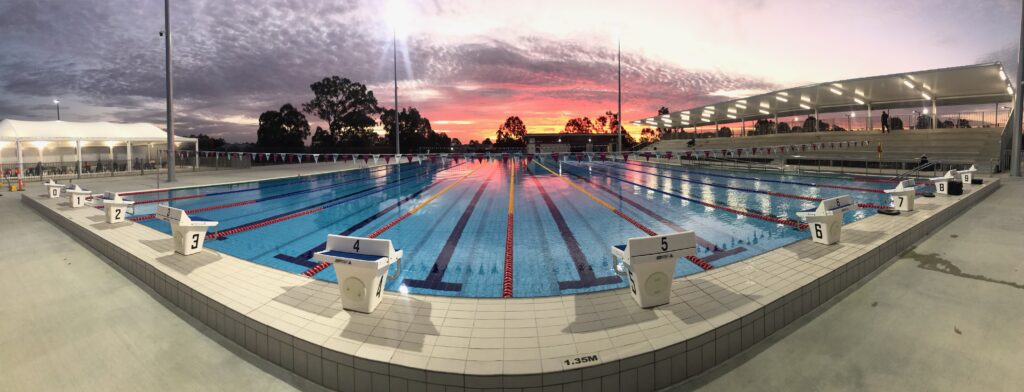
For the short-term future, the aim of our Canterbury Taipans Swimming Squad, is to be recognised as a leading junior development program, and for the quality of swimmers that we produce – not just in terms of results, but in technique, training and racing ability.
For our Canterbury Taipans to achieve this, we need a sound structure that begins at the Learn-To-Swim level, and progresses up through to our highest performance squads.
Our training program mantra will be: It’s best to be fast for ten years, not just at ten years old.
With this philosophy, our goal of having a recognised high-performance program is achievable.
Our aim at the Canterbury Taipans will not be about winning… It will be ACHIEVING.
We want our swimmers to achieve the goals they set for themselves, and we as a club, are going to encourage them to dream as high as possible.
So if we have an 11-year-old who says: I want to go to the Olympics, we can be sure in saying that you have come to the right program.
For our club will have a system focussed on the long-term development of each swimmer.
Our club will be the first steppingstone in a long journey for a younger swimmer, that we hopefully can nurture into great aspirations.
It takes 8 – 12 years of training for talented swimmers to reach the elite level, and we are the first stage in that long process.
With this in mind, if we don’t manage and nurture the young swimmers who come to our pool through these early growth and development years, then their dreams may not eventuate.
So we’ve implemented a program dedicated to long-term swimmer development.
Currently our Senior Squad has a mixture of ages from 11 – 17 years old. This has somewhat been based on their lap times, rather than their developmental needs.
Our program will follow the Long-Term Athlete Development (LTAD) model framework, which is about applying the correct training and competition throughout a young swimmer’s career, with a strong focus on their growth and development.
As we mature, we all go through the same developmental stages from childhood to adulthood.
But each stage can be at different times, and stages can vary in length. Of course, there are also gender differences, as development in girls is usually earlier than boys.
The make-up of each of our squads will be based predominately on age, so most of our swimmers will be training with their peer group.
Of course, there are those swimmers who develop earlier and attain skill levels above their age development, and these youth will be assessed on their needs as required.
Now this structure will take time to implement fully. Monitoring and fine tuning will be ongoing, and any necessary changes will be made.
Patience will be necessary over the coming months, but I’m sure in the coming years, we will see the positive results of these changes.
Mr Simon Smith
Head Swimming Coach
Canterbury Swimming – College & Taipans Club
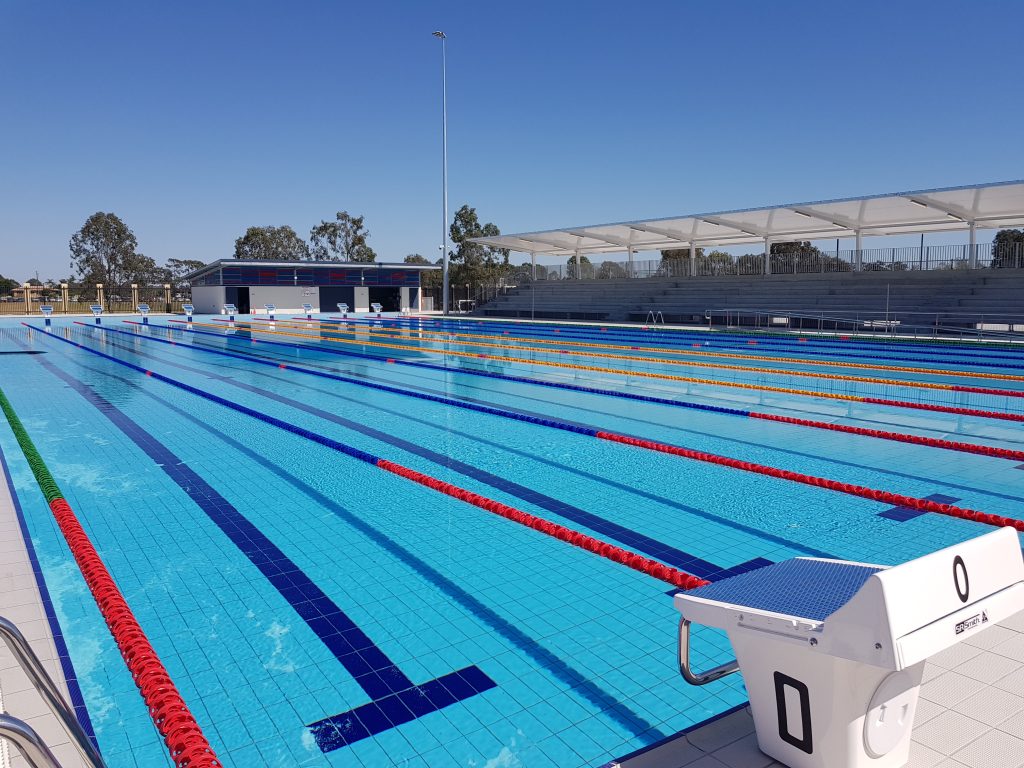
TINY TAIPANS SQUAD: Basic Movement Literacy
This squad’s focus will be on the development of all four strokes – freestyle, breaststroke, backstroke and butterfly, and developing basic movement patterns and motor skills. There will be an emphasis on learning through fun and games.
Progression
- Agility, balance, coordination and speed.
- Technique: all four strokes – freestyle, breaststroke, backstroke and butterfly.
- Racing skills: starts, turns and finishes.
- Movement coordination.
- Speed, power and endurance.
- Introduction to basic rules and simple training sets.
Growth & Development Considerations
- Emphasis on skills development.
- First speed development window.
Ages: Males 6 – 9 Years | Females 5 – 8 Years.
Sessions: Recommend 1 – 3 times per week, plus general participation in other activities.
Session Duration: 30 mins.

DEVELOPMENT SQUAD: Building Technique
This squad will be for competent new young swimmers, with training still heavily technique-focused. Training will be one-hour plus duration, with the introduction of dryland activities.
This stage is vital, because if this stage is missed, participants will never reach their full potential. It is one of the main reasons why swimmers plateaux during the later stages of their careers.
Progression
- Fundamental level skills become more technical.
- Peak motor skill development: shoulders, elbows, core, spine and ankle stability.
- Learn how to train.
- Develop swim specific skills.
- Develop excellent technique in all four strokes and learn racing skills.
- Refine starts, turns and finishing skills.
- Dryland exercises.
- Aerobic endurance.
- Greater mix of training methods.
- Hydration and nutrition.
Swimming Specific Skills
- Improvement of all four strokes, sculling and the ‘feel of water’.
- Improve conditioning components of endurance and speed.
Growth & Development Considerations
- Peak motor coordination emphasis on skill development before age 11 for girls and 12 for boys.
Ages: Males 9 – 12 Years | Females 8 – 11 Years.
Sessions: Recommend 2 – 4 times per week, plus general participation in other sports.
Session Duration: 60 – 75 mins.
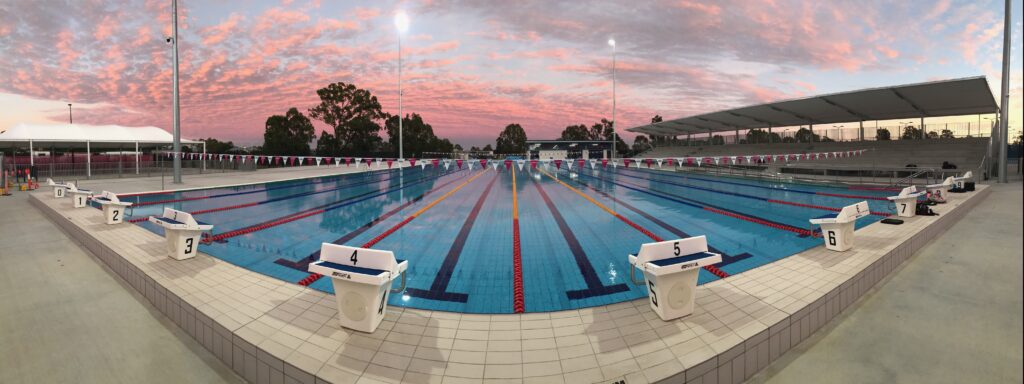
TALENT SQUAD: Building The Engine
During this development stage, the emphasis will be on aerobic conditioning. The training will be predominately high volume, low intensity workloads, which cannot be achieved in a limited period.
Therefore, the time commitment to training should increase significantly. If insufficient time is devoted to this stage, or it is missed, then the swimmer will never reach their full potential.
Progression
- Emphasis on aerobic conditioning.
- Second speed development window.
- Individualisation of fitness and technical training.
- Shoulders, elbows, core, spine and ankle stability.
- Refinement of specific technical skills.
- FUNdamentals of tactical preparation.
- Introduction to mental preparation.
- Moral learning.
Swimming Specific Skills
- Development of aerobic base and all four strokes (200 IM: Individual Medley).
Growth & Development Considerations
- Growth spurt emphasis on aerobic development.
- Second speed development window.
- First strength development window for females.
Ages: Males 12 – 14 Years | Females 11 – 13 Years.
Sessions: Recommend 4 – 7 times per week.
Session Duration: 90 mins.

TARGET SQUAD: Training To Compete
This training will have a continued emphasis on physical conditioning, with the focus on maintaining high volume workloads, but with increasing intensity.
There will be more specific development of individual strengths and weaknesses through modelling, and nurturing of individual needs and tactical skills, based around specific strokes or distances – but not both. During this stage, introduction to strength training should occur.
Progression
- Sport and individual specific physical conditioning.
- Increased volume and training intensity.
- Beginning to specialise.
- Cross-training activities.
- Individualisation of technical skills.
Swimming Specific Skills
- Start to compete across a wider range of events, based on strokes or distance.
Growth & Development Considerations
- Peak strength development emphasis.
- Second strength development window for females.
Ages: Males 14 – 18 Years | Females 13 – 18 Years.
Sessions: Recommend 6 – 9 times per week.
Session Duration: 2 hours.
Training Volume: Beginning at 18,000 metres working towards 52,000 metres per week.
